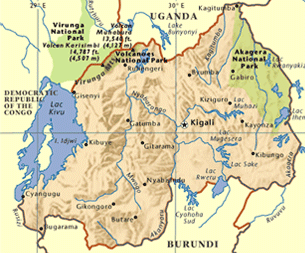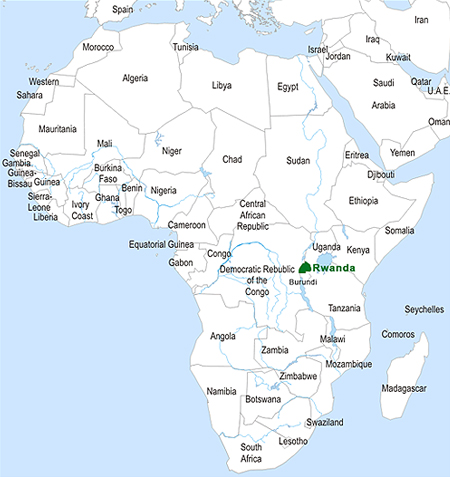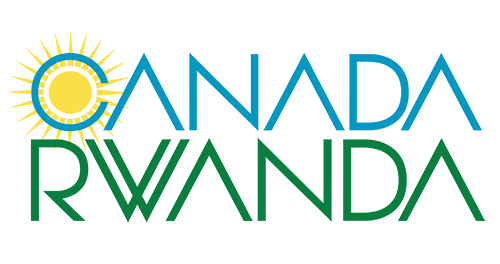In 1959, three years before independence from Belgium, the majority ethnic group, the Hutus, overthrew the ruling Tutsi king. Over the next several years, thousands of Tutsis were killed, and some 150,000 driven into exile in neighboring countries. The children of these exiles later formed a rebel group, the Rwandan Patriotic Front (RPF), and began a civil war in 1990. The war, along with several political and economic upheavals, exacerbated ethnic tensions, culminating in April 1994 in a state-orchestrated genocide, in which Rwandans killed up to a million of their fellow citizens, including approximately three-quarters of the Tutsi population. The genocide ended later that same year when the predominantly Tutsi RPF, operating out of Uganda and northern Rwanda, defeated the national army and Hutu militias, and established an RPF-led government of national unity. Rwanda held its first local elections in 1999 and its first post-genocide presidential and legislative elections in 2003. Rwanda also joined the Commonwealth in late 2009.
REPUBLIC OF WRANDA | |
Location | Central Africa, east of Democratic Republic of the Congo. |
Capital | Kigali |
Area | total: 26,338 sq km |
Land Use | arable land: 45.56% |
Geography | Most of the country is savanna grassland with the population predominantly rural. |
Climate | Temperate; two rainy seasons (February to April, November to January); mild in mountains with frost and snow possible. |
Terrain | Mostly grassy uplands and hills; relief is mountainous with altitude declining from west to east. |
Natural Resources | Gold, cassiterite (tin ore), wolframite (tungsten ore), methane, hydropower, arable land |
Natural Hazards | Periodic droughts; the volcanic Virunga mountains are in the northwest along the border with Democratic Republic of the Congo. |
Population | 11,370,425 (July 2011 est.) |
Major Cities Population | Kigali (capital) 909,000 |
Religions | Roman Catholic 46.5%, |
Languages | Kinyarwanda (official, universal Bantu vernacular), |
Government Type | Republic; presidential, multiparty system |
Political Parties and Leaders | President Paul KAGAME (since 22 April 2000) |
Independence | 1 July 1962 (from Belgium-administered UN trusteeship) |
Legal System | Mixed legal system of civil law, based on German and Belgian models, and customary law; judicial review of legislative acts in the Supreme Court. |
conomy | Rwanda is a rural country with about 90% of the population engaged in (mainly subsistence) agriculture and some mineral and agro-processing. Tourism is now Rwanda’s primary foreign exchange earner and in 2008, minerals overtook coffee and tea as Rwanda’s primary export. |
Transportation | Airports: 9 |
History | In 1959, three years before independence from Belgium, the majority ethnic group, the Hutus, overthrew the ruling Tutsi king. Over the next several years, thousands of Tutsis were killed, and some 150,000 driven into exile in neighboring countries. The children of these exiles later formed a rebel group, the Rwandan Patriotic Front (RPF), and began a civil war in 1990. The war, along with several political and economic upheavals, exacerbated ethnic tensions, culminating in April 1994 in a state-orchestrated genocide, in which Rwandans killed up to a million of their fellow citizens, including approximately three-quarters of the Tutsi population. The genocide ended later that same year when the predominantly Tutsi RPF, operating out of Uganda and northern Rwanda, defeated the national army and Hutu militias, and established an RPF-led government of national unity. Rwanda held its first local elections in 1999 and its first post-genocide presidential and legislative elections in 2003. Rwanda also joined the Commonwealth in late 2009. |
It depends on what activities you plan on carrying out while you are in Rwanda. The long dry season is from June to September which is the best time for tracking gorillas in the Volcanoes Park and hiking in Nyungwe Forest, as the ground is dry. The wet season is February to June (and a shorter season September-December) is best for tracking chimps in Nyungwe and the scenery is greener in addition the sky is less hazy. The average temperature in Rwanda is 24.6 to 27.6 °C year round and the hottest months are August and September.
In a move to make Rwanda more eco-friendly, at the airport, tourists may be asked to exchange any plastic bags for cotton fiber bags.
Rwanda has no strict dress code on what to wear, although women travelers are advised to dress sensibly. In business areas, people tend to dress smartly. Cotton clothing is the most comfortable during the day, as it gets quite hot, but the nights tend to be chilly, so a heavy sweater and boots are essential. For gorilla tracking, warm clothing is required as well as walking/hiking boots, a hat and lightweight parka or raincoat.
Most mid-range and upward hotels have internet services that can be used. In Kigali, there are a number of fast, reliable internet facilities. Outside of Kigali, however, servers can be slow and subject to breakdowns.
230/240 volts at 50Hz. Type of socket is the 2-pin socket.
During the months June to September, as well as Christmas and New Year’s, demand for permits is high, therefore it is advisable to book as far ahead as possible. The booking can be made directly through the ORTPN office in Kigali, by emailing reservation@rwandatourism.com. Depending on availability, permits can be bought before 17h00 the day before the track, and at Kinigi on the morning of the track. However, there is no guarantee a permit will be available and it is strongly advised that one books well in advance to avoid disappointment.
No, for their safety and to ensure the preservation of the National Parks, all tourists must be accompanied by a guide, who provides useful information on the wildlife and fauna.
Yes they can. No incident involving tourists has ever been reported in both national parks from 1994 until now. The border is patrolled by the Rwandan army 24 hours. The guide and ranger accompany the trekking in national parks. The tourist can experience a trekking in safe environment.
No. Bottled or boiled water is safest.
Yes, there are over 300 private clinics, 34 district hospitals and over 380 health centers and dispensaries in the country. Outside of Kigali, medical facilities are more basic. Anti-malaria tablets and mosquito repellent are essential. Tourists require a Yellow Fever inoculation.
Yes, they can. Rwanda is perhaps the most crime-free African country and Kigali is a very safe city. Although tourists should beware of pickpockets in busy markets and bus stations. In public places, tourists should keep a close eye on their possessions and avoid having valuable or large amounts of money loose in pockets or bags. It is strongly advised to keep all valuables and money in a hidden money belt.
Yes, hotels and guesthouses are safe, particularly in Kigali, although, it is a good idea to lock up your valuables. Some mid – range and upward hotels will have a safe for you to lock up anything valuable.
Tourists cannot bring into the country any illegal substances or firearms.


The Canada-Rwanda Board of Trade will be acclaimed as a leader and catalyst in facilitating value for its members by optimizing their competitive viability in the regional, national, and global marketplaces.

